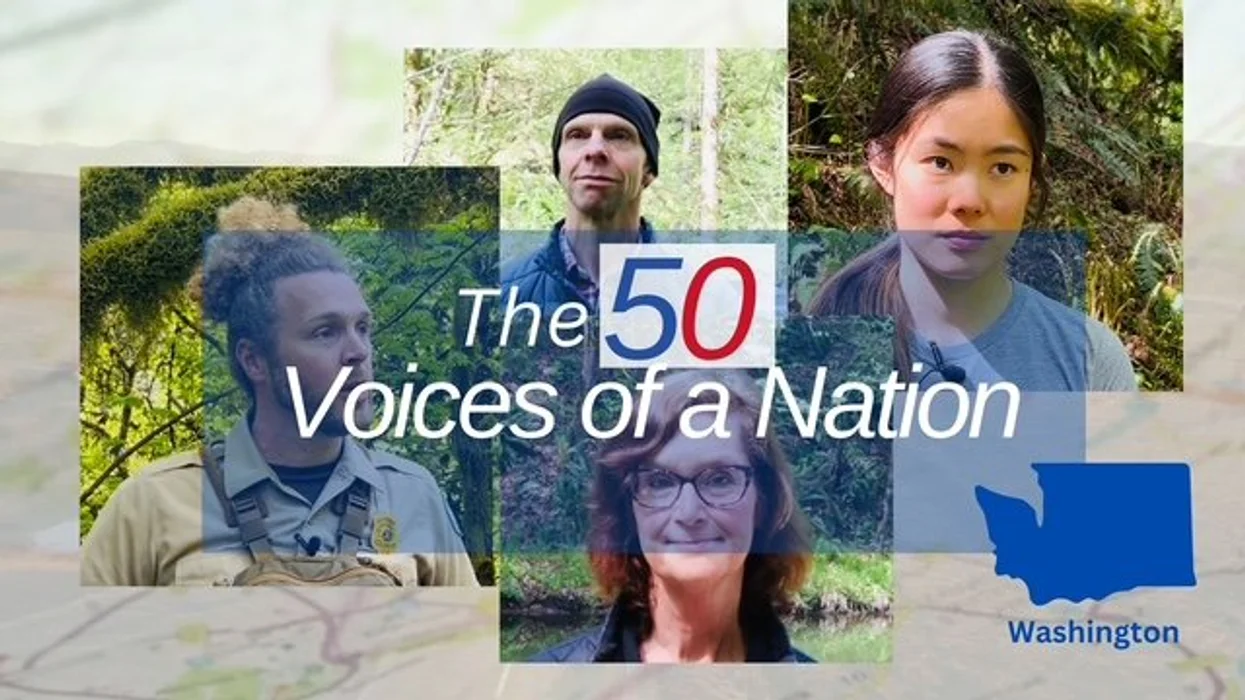Washington State has historically fluctuated between Republican and Democratic preferences. While it was considered a Republican-leaning swing state until the 1980s, the political landscape shifted significantly in the following decades. Since 1988, the Democratic Party has won every presidential election in Washington, consistently achieving victory by double-digit margins since 2008.
As expected, Kamala Harris comfortably won the state in the 2024 presidential election. While Donald Trump improved his margin in all fifty states, Washington had the smallest swing to the right.
Soon after returning to the White House, Trump quickly eliminated environmental safeguards on more than half of the nation’s national forests, opening up 59% of the land for logging, including Washington.
With its majestic mountains, lush forests, and rugged coastline, Washington State is renowned for its stunning natural beauty. This makes it a beloved destination for nature enthusiasts and outdoor adventurers alike.
Green spaces, such as national parks and urban forests, are an important part of Washington State residents’ culture. They offer substantial benefits for physical and mental health while also contributing to environmental well-being.
An infrastructure project in Bellevue to update essential wastewater systems is designed to improve habitats for fish and wildlife and increase access to natural areas for people of all abilities.
“The Coal Creek sewer upgrade is a large capacity-driven upgrade project. We are upsizing the pipes to accommodate increased demand,” said Scott Mingus, Project Manager with King County. The current sewer line, installed in the 1960s, crosses under the creek in multiple locations, generally following the creek with multiple maintenance holes.
Salmon-Safe has recognized the design of King County’s Wastewater Treatment Division project for its dual focus on minimizing environmental impact and enhancing local ecosystems.
“We’re really in an urban forest. This is a great example of how we can continue to restore nature, but also have highly engineered and functioning stormwater and wastewater systems coming through, and it not being a detriment to the aquatic life or the habitat here,” said Ella Sandquist, Director of Salmon-Safe Puget Sound.
Effective community communication is vital for the success of an enterprise as large and ambitious as the Coal Creek Sewer Upgrade Project. It helps build trust, ensures project transparency, and fosters buy-in from stakeholders.
“Our first introduction is to say, ‘Here’s the services we provide. Here’s the incredible value for you and the environment. Here’s the project we have and the problem we’re starting to solve,” said Monica Van der Vieren, Community Services Project Lead with King County. “And we do that early, so that we can start to hear community values.”
Collaboration with governments is crucial for addressing projects that can significantly impact environmental outcomes. Bellevue’s Mayor Lynne Robinson said partnerships allow for broader, more impactful solutions to complex problems.
“Looking at all the opportunities that you have. We have all these lists of things we’d like to get done if we could, and pulling everybody together so that we can work together and get it done. We’re trying to undo some of the things we did wrong when we didn’t understand,” said Robinson.
Environmental organizations like the Issaquah Alps Trails Club are crucial in raising awareness about environmental issues, empowering individuals and communities to take action, and driving systemic change by influencing policies and corporate practices.
Kelly Jiang, president of the Club, said the organization’s work involves both inside and outside work. “So, the inside game is talking with legislators, working with agency staff on what are some shared goals. The outside game is activism,” she said. “Some of the most important achievements have been about working together to find denser solutions that pair denser development with open space.”
Green spaces improve air quality, moderate temperatures, and reduce noise pollution while providing opportunities for recreation, social interaction, and stress relief.
“I think it’s important for my health to get fresh air, to disconnect from stress, from work, and to remember what this area was like before all the humans got here,” said Alejandro, a resident of Bellevue.
The 50 is a four-year multimedia project in which the Fulcrum visits different communities across all 50 states to learn what motivated them to vote in the 2024 presidential election and see how the Donald Trump administration is meeting those concerns and hopes.
